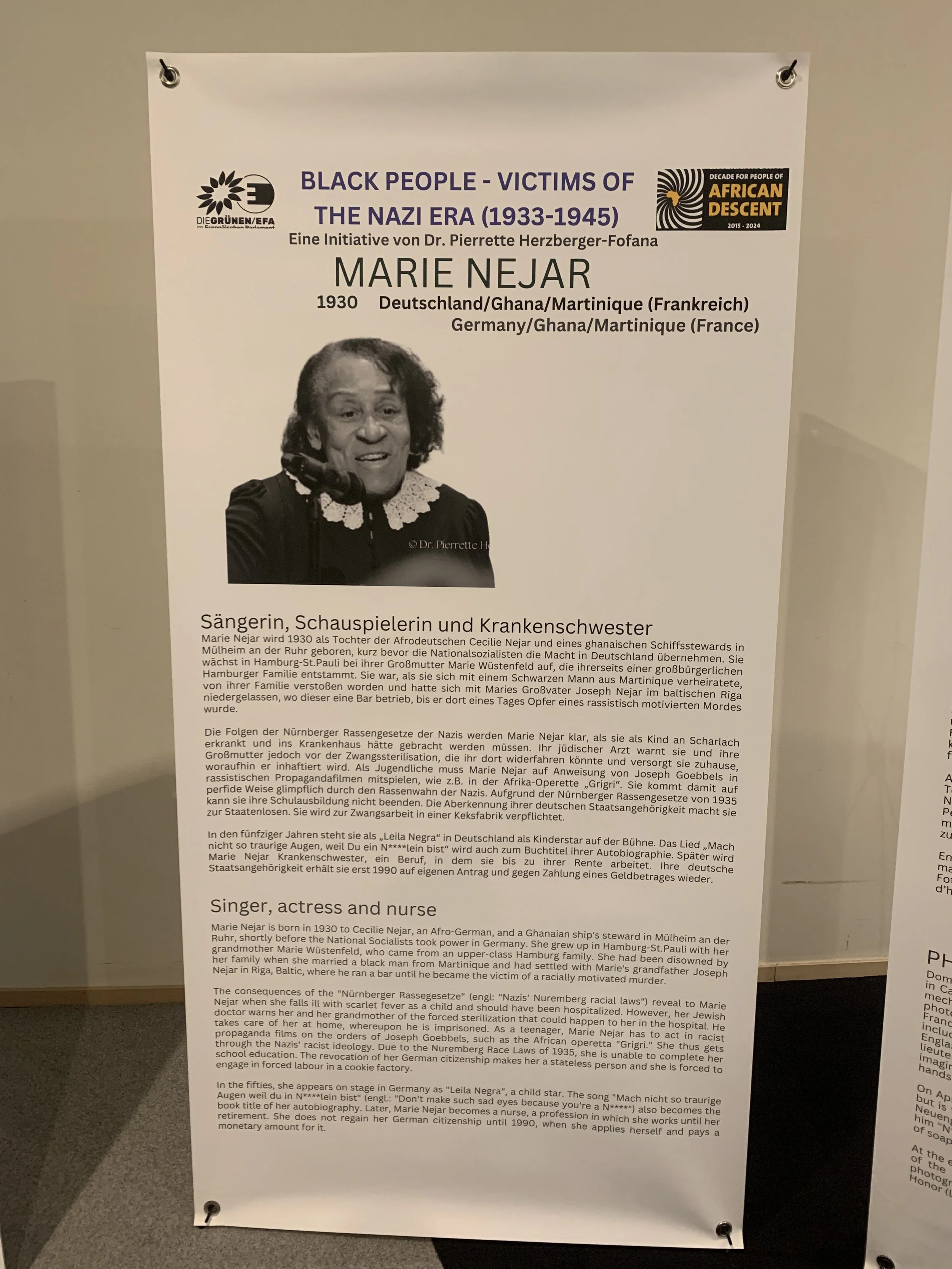Joint EC/EP Commemoration Day of the European Day for the Abolition of the Slave Trade
5th December
On 5th December we attended the Commemoration Day of the European Day for the Abolition of the Slave Trade, organised jointly by the European Parliament and the European Commision.
This event was a chance to reflect on the historical, yet ongoing legacy of racism, colonialism and slavery within the European Union, and how this continues to affect those from racialised and other minority groups today. We heard from esteemed panellists including EC Anti-racism Coordinator Michaela Moua, and former French Prime Minister and current President of the ‘Fondation pour la mémoire de l’esclavage’ (Foundation for the Remembrance of Slavery), Jean-Marc Ayrault, who discussed the historical roots of racism within Europe.
Another panel member, Nataly Van Driel, Head of the Slavery Past Program of the Netherlands Ministry of the Interior, explained the ways in which the Netherlands is currently trying to address their role in the history of the European slave trade through such actions as:
Investing in the improvement of education on racism, and the Netherlands role in the history of slavery, in both primary and secondary school curriculums;
Giving descendants of enslaved people the option to change slavery-related surnames free of charge;
Preserving and developing cultural heritage sites, museums and artefacts, including establishing a national slavery museum;
Initiating a national research programme to improve understanding of how the past continues to affect society today.
We were also delighted to hear from representatives from the European Union Agency for Fundamental Rights (FRA), and from our own partner organisation, the European Network Against Racism (ENAR), as well as professors and academics and numerous MEPs, who engaged in panel discussions including: structural racism and law enforcement; analysing the findings of the recent FRA report, ‘Being Black in the EU’, in the context of systemic and structural racism.
Dr. Emmanuel Achiri, Policy and Advocacy Advisor at ENAR, moderated the panel on structural racism, law enforcement, and legacies of colonialism and enslavement. During this session, panellists including Mame-Fatou Niang, associate professor and Director- Founder of the Center for Black European Studies and the Atlantic, and Sarah Van Praet, Researcher at the National Institute of Criminalistics and Criminology, discussed the ways in which racist and colonial roots are fundamentally embedded in the foundations of the European Union.
Without first recognising the ignorance of race and racial differences present within the institutions of many EU countries, we cannot hope to address the deep systemic and structural inequalities faced by people of African descent in the EU. Law enforcement is a good example of this. As noted by Sarah Van Praet, the foundations of policing practices are predominantly rooted in the socialisation of officers among their peers and the prevailing organisational culture, which actually tends to surpass the influence of professional training and legal knowledge. Consequently, those entrusted with pivotal roles in law enforcement often find themselves, intentionally or not, perpetuating racial biases, stereotypes, and discriminatory perspectives that permeate communities and society at large.
So why has Europe found it so difficult to rid itself, its society and institutions, of this structural racism? Well, as noted by Dr. Achiri, “Europe was built and continues to thrive on an idea of racial superiority [...] racism is fundamental to the construction of European States and the EU itself.” However, this is not to say that steps have not been taken to support the eradication of racism in Europe. We can think of such examples as the Race Equality Directive (2000), and the EU Anti-Racism Action Plan (2020-2025). Nevertheless, such initiatives have still been critiqued for failing to adequately address the issues caused by and related to widespread systemic and structural racism.
At the end of the event, we were invited to hear from MEP of the Greens/EFA and Co-Chair of ARDI, Dr. Pierette Herzberger-Fofana, who presented the draft European Parliament Resolution on Reparatory Justice. This new resolution addresses the fact that “no concerted efforts to recognise, address and rectify the lasting effects of European colonialism on social and international inequities” have yet been made by the EU. It therefore seeks to target the roots of racial discrimination through an interdisciplinary approach, focusing on the history of racial discrimination, including colonialism and slavery, and the role of the EU in delivering repertory justice.
This commemorative day served as a poignant reminder of the profound and enduring impact of racism, colonialism, and slavery within the European Union, providing a platform for insightful discussions and reflections on the historical roots of these issues, and acknowledging their persistent influence on racialized and minority communities today. It becomes evident that the true challenge ahead lies in crafting an approach that actively dismantles structural racism entrenched within powerful institutions, particularly the legal and judiciary systems.
To navigate this complex path toward change, there is a pressing need for inclusive solutions grounded in interdisciplinary and evidence-based research. Recognising the fundamental roots of racism in Europe and its institutions becomes paramount for developing effective strategies for change. This involves a comprehensive understanding that extends beyond surface-level remedies, ensuring that initiatives address systemic issues at the core, fostering a more inclusive and just society for the future.


